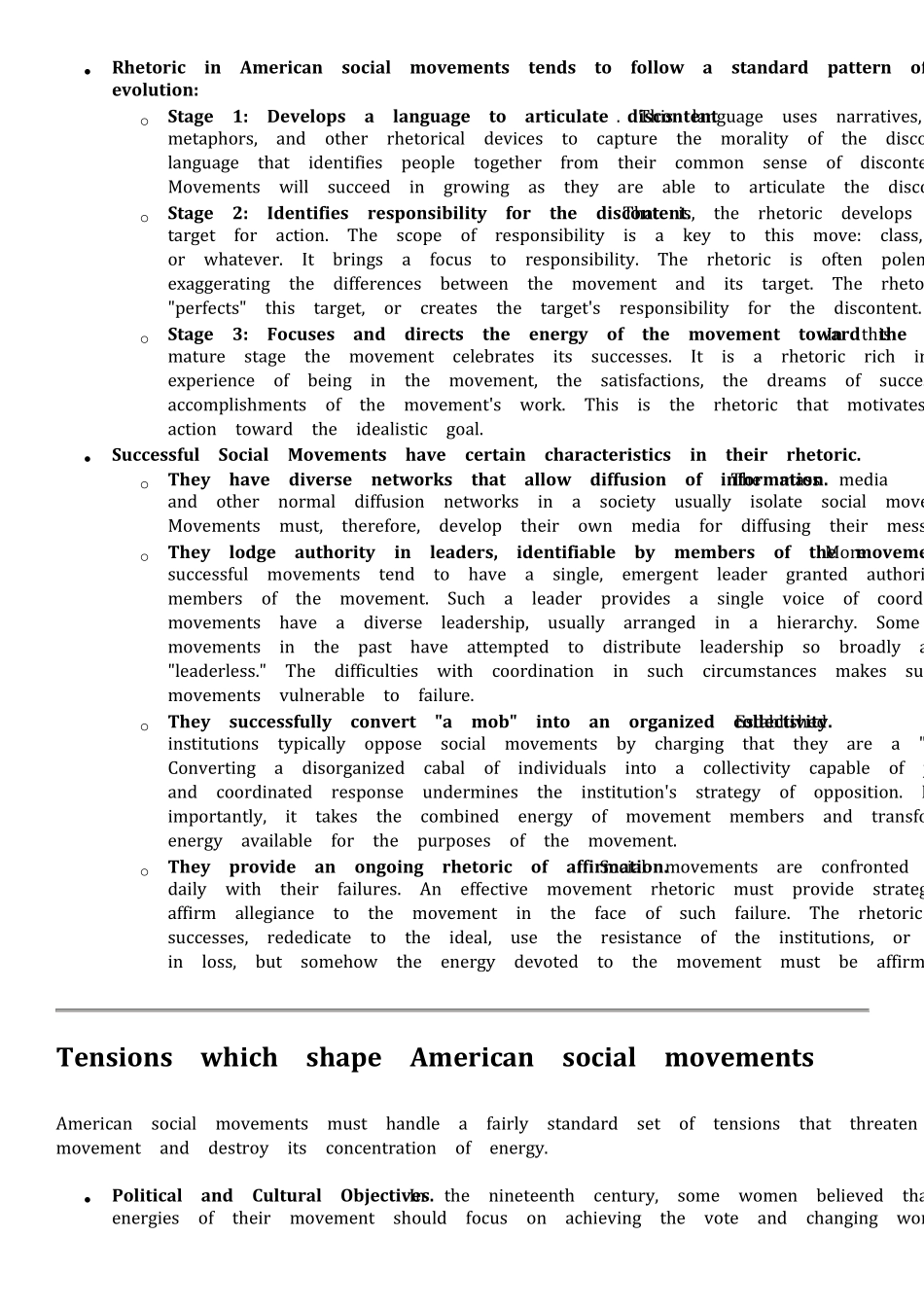Social Movements of the 1960s Social Movements and the Political System • Political Action in America is basically conservative. Rhetoric focuses action toward: o individuals, o institutions, or o broader cultures and social orders. American politics normally focuses action on individuals so there is no institutional change. Even in times of more dramatic political activity, the focus is on institutions. More dramatic forms of social change, therefore, must rely on non-governmental and non-institutional sources. Social movements are such a strategy. • American social change has been intensively linked with public voice. The founding discourse of the United States stresses the voice of people. In addition, the United States is a nation of new groups, most notably the immigrants but also nativist groups such as new religions and utopians of various kinds. "Founding" is thus the great American activity. Social movements are such groups founded for particular purposes. The result is that, in addition to the traditional movements that urge political change from outside the political system, two additional types of social movement have characterized movements in the United States: o The Identity Movement. Identity movements provide a place for those who share a particular characteristic -- ethnic origin, sex, race, religion, creed -- to have public voice. Movements provide a context for the discourse that declares discontents to be more than private pain and for isolation of experience to be artificial. Identity movements provide people who had seen themselves as separated and isolated to embrace others and join with them to declare their identity. o The Integrative Movement. Integrative movements seek to prov...


